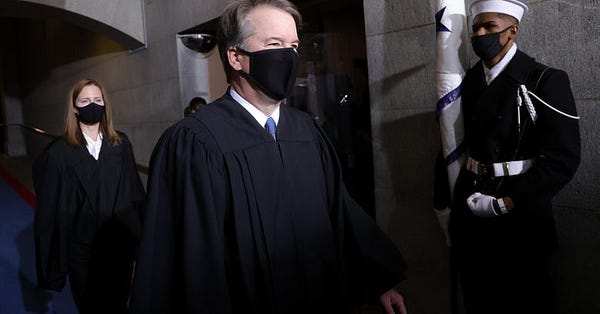One of my favorite quotes, for its thick-headed American unaccountability, comes from Oakland A’s/St. Louis Cardinals slugger Mark McGwire: “I’m not here to talk about the past.”

It’s the context, for me. Mark McGwire grew up in Southern California, went to USC, played on the 1984 U.S. Olympic baseball team, won a World Series, and hit 583 home runs. But the most American thing he ever did took place in a Congressional hearing room on St. Patrick’s Day, 2005.
Four years retired, McGwire was testifying before the House Government Reforms Committee on, as you can see from the C-SPAN screenshot “Steroid Use in Baseball.” He was there, specifically, to “talk about the past.”
—
I recently finished Patricia Highsmith’s The Talented Mr. Ripley, a book whose story I thought I knew, though I’d never read it nor seen the 1999 movie. Probably because it starred Matt Damon, I’d cataloged it in my head as The Bourne Identity meets Six Degrees of Separation. But it’s darker and more unsettling than either of those.
It’s the 1950s, and Ripley is a young man of little means, for whom “[i]t would have taken him the best years of his life, even if he had economized stringently, to buy the things he wanted.” Through a series of unlikely twists, he murders Dickie Greenleaf (Jude Law in the movie), a young man whom Greenleaf’s father has sent Tom to Italy to check in on. Ripley assumes Greenleaf’s identity, and then kills a friend of Greenleaf’s (Phillip Seymour Hoffman) when he gets suspicious.
These murders aren’t spoilers; the book’s drama derives from Ripley’s interiority, his self-delusions. It’s a sociopathic ride-along: “If you wanted to be cheerful, or melancholic, or wistful, or thoughtful, or courteous, you simply had to act those things with every gesture.”
Or: “His stories were good because he imagined them intensely, so intensely that he came to believe them.” Ripley fictionalizes and re-fictionalizes himself so often that he feels genuine indignation when accused of something he actually did: “Tom clung harder in his mind to his own facts, determined to defend them unto death.”
Ripley and his situation highlight our urgent desire to be judged as individuals, not by the sum of our actions — or by the sum of our actions minus our mistakes. One might say this is rooted in what James Baldwin called an “American confusion” stemming from “the very nearly unconscious assumption that it is possible to consider the person apart from all the forces that have produced him.”
—
In his recent Atlantic story/writearound of/speculation about Brett Kavanaugh, McKay Coppins considers the effect of the contentious confirmation process on SCOTUS’s frat-bro-iest justice (also played by Matt Damon). But Coppins offers a framing sentence that is obvious yet revelatory: “If Kavanaugh had grown up somewhere else, he might have joined a cult or a street gang; because he grew up in Bethesda, he pledged a fraternity at Yale.”

Of course! And because he grew up in Bethesda, he got to simultaneously claim credit for the grinding study habits that propelled him through Georgetown Prep and Yale and Yale Law, while dismissing his concurrent binge-drinking and credible sexual assault(s) as so much “youthful bravado,” in Coppins’ words.
I, for one, am fortunate and happy to have been able to discard or ignore many of the consequences of youthful bravado, and to be able to move forward holding close only those accomplishments that cast me in the best light. I’m able to do this easily because of a characteristic I share with the erstwhile Bash Brother, the fictional Mr. Ripley, and Kegstand Kavanaugh.
Michelle Alexander, in her exhaustive, enraging The New Jim Crow: Mass Incarceration in the Age of Colorblindness, makes an observation — as she does on almost every other page — that, like Coppins on Kavanaugh above, is something we intuit but don’t often articulate:
“When black youth find it difficult or impossible to live up to these standards — or when they fail, stumble, and make mistakes, as all humans do — shame and blame is heaped upon them. If only they had made different choices, they’re told sternly, they wouldn’t be sitting in a jail cell; they’d be graduating from college. Never mind that white children on the other side of town who made precisely the same choices — often for less compelling reasons — are in fact going to college.”
We don’t often articulate this fact because it is so ugly. Alexander published her book during the Obama Administration, and she does not spare liberals or Democrats as she points out their complicity with and even enthusiastic participation in building the carceral state.
Once again, it comes down to who gets the benefit of the doubt: most white people, people with enough money, people who work on behalf of the justice system. As Alexander points out after citing case upon case: “[t]he legal rules adopted by the Supreme Court guarantee that those who find themselves locked up and permanently locked out due to the drug war are overwhelmingly black and brown.”
Not only do some of us never have to answer for our actions, if we’re well-placed enough to be up for a job at the very top of a merciless justice system, we get to be indignant at the people interviewing us for the job at their failure to offer us mercy.
And, once we’re installed in the post, why should we offer anyone the mercy that we have indignantly demanded?



They should have followed the rules.





I suspect that McGwire and Kavanaugh stand out for their chutzpah on public display, but not otherwise.